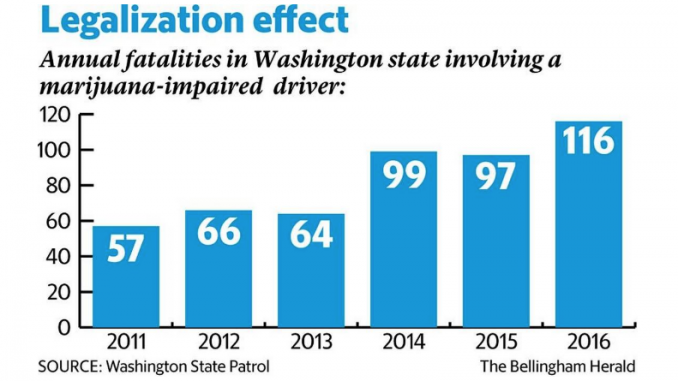
“There are 2 major flaws in marijuana DUI data post legalization. First, science supports that the mere presence of THC in the blood or urine does not constitute impairment as with alcohol and some other drugs. In fact, the more regularly a person uses marijuana (such as for medical patients), the less impairment they experience. Therefore, a person who is a medical patient might have a high level of THC in their blood, but show little to no impairment on the road when compared to someone who only consumes occasionally. The second issue relates to measurement. Prior to legalization, alcohol was tested for first at the scene of an accident. If alcohol was shown to be a factor, many times the person was not tested for anything else. After legalization, states started testing for marijuana along with alcohol in every crash situation. This gives the appearance of an increase in drivers testing positive for marijuana after a crash, when in reality it reflects a change in testing protocol.”
Amanda Reiman, email to David Malmo-Levine, 2016
Amanda Reiman PhD MSW | Manager, Marijuana Law and Policy, Drug Policy Alliance, 1330 Broadway, Suite 1426, Oakland, CA 94612, Office: 510.679.2312, Cell: 510.730.2811, [email protected], www.drugpolicy.org, @AmandaReiman
